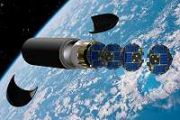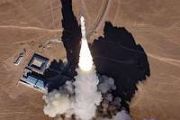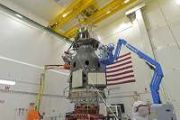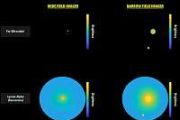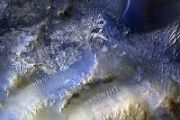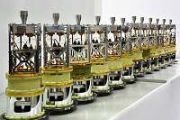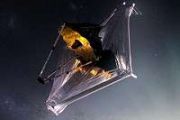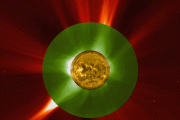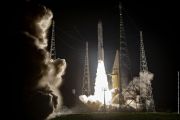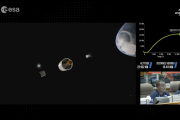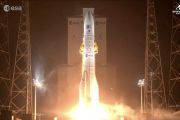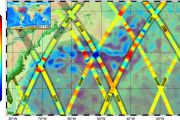
Copernical Team
Hakuto-R spacecraft just captured its own stunning version of 'Earthrise'
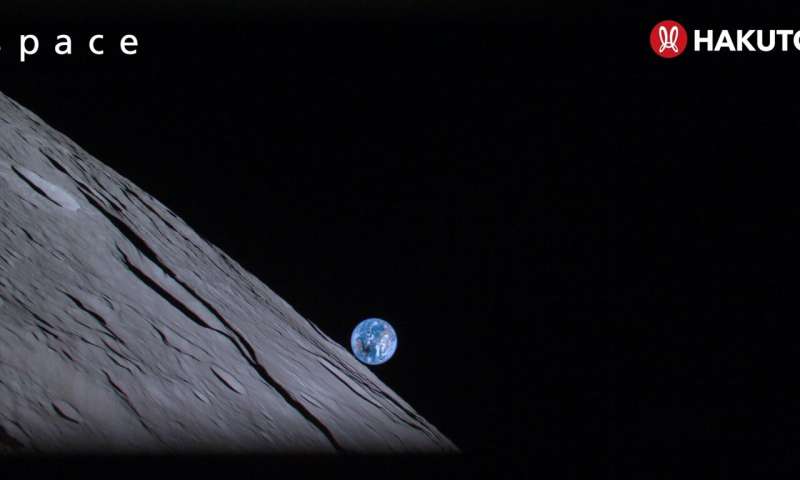
The Hakuto-R lunar lander, currently in orbit around the moon, just captured a beautiful "Earthrise"-like image, and one with an interesting side note. The Mission 1 lander, from the Tokyo-based commercial company ispace, took the image during the time of the April 20 solar eclipse, where totality was visible in Australia; and so the photo includes a perfect view of the shadow of the moon passing above the Land Down Under.
The spacecraft was approximately 100 km (60 miles) above the lunar surface when it took the photo.
"We've received another incredible photo from the camera onboard our Mission 1 lander!" ispace Tweeted this morning.
Earth and the moon are seen with stunning clarity, showcasing the lander-mounted camera's abilities.
This could be a big week for Hakuto-R, as its landing on the moon could come as soon as today, Tuesday, April 25 at 16:40 (UTC)/12:40 (EST).
Here's how NASA is planning to protect Earth from asteroids and comets
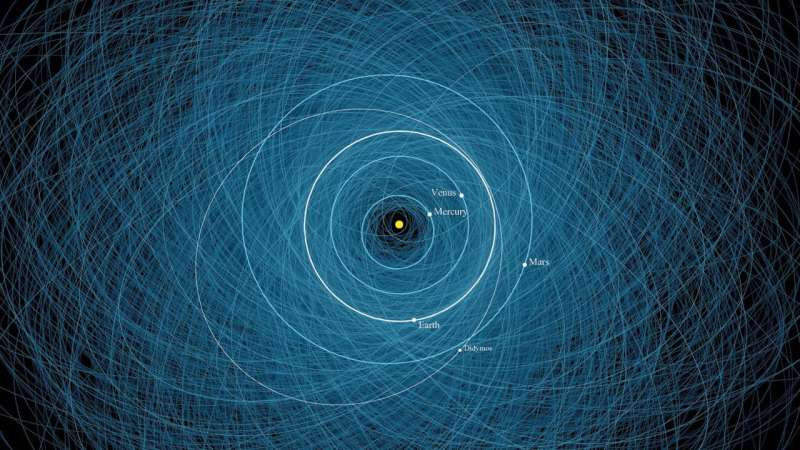
The large impact craters dotting our planet are powerful reminders that asteroids and comets strike the Earth from time to time. As often said, it's not a question of "if"; it's a matter of "when" our planet will face an impending strike from space. But an impact is one existential threat humanity is finally starting to take seriously and wrap its head around.
Japan firm's pioneering Moon landing fails

A Japanese startup attempting the first private landing on the Moon said Wednesday it had lost communication with its spacecraft and assumed the lunar mission had failed.
Ispace said that it could not establish communication with the unmanned Hakuto-R lunar lander after its expected landing time, a frustrating end to a mission that began with a launch from the United States over four months ago.
"We have not confirmed communication with the lander," a company official told reporters about 25 minutes after the expected landing.
"We have to assume that we could not complete the landing on the lunar surface," the official said.
Officials said they would continue to try and establish contact with the spacecraft, which was carrying payloads from several countries, including a lunar rover from the United Arab Emirates.
Ispace founder and CEO Takeshi Hakamada said after the apparent failed landing that they had acquired data from the spacecraft all the way up to the planned landing and would be examining that for signs of what happened.
SpaceX Starship clobbered Texas launch pad; future Space Coast launches prompt contingency plans
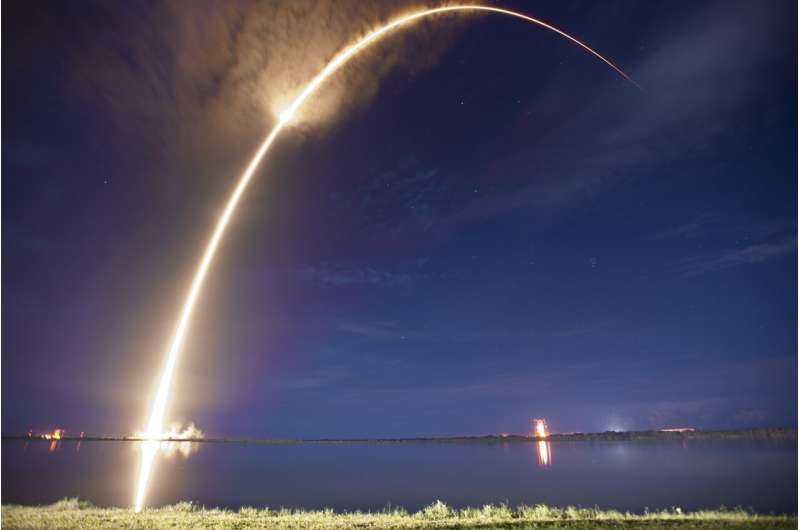
The most powerful rocket to ever launch from Earth left a crater at the SpaceX launch site last week, but Elon Musk said teams could be ready to try another Starship launch in as little as one to two months.
Meanwhile, SpaceX continues to build out a backup site for human launches on the Space Coast to assuage NASA fears of potential Starship damage for when it starts flying from Kennedy Space Center.
Those launches won't come until SpaceX completes testing from SpaceX's Starbase launch site in Boca Chica, Texas where the first integrated launch of the Starship and its Super Heavy booster took place last Thursday.
While it didn't make it to space, the booster's 33 Raptor engines that can produce more than 17 million pounds of thrust was able to clear the launch tower. About four minutes after flying only to about 24 miles and tumbling back to Earth, SpaceX sent the self-destruct command resulting in the rocket exploding over the Gulf of Mexico.
"The vehicle experienced multiple engines out during the flight test, lost altitude, and began to tumble," reads an update on the SpaceX website.
Norway irked over Swedish rocket crash on its turf

The Norwegian foreign ministry expressed irritation Tuesday with Sweden for not immediately informing it of a research rocket that crashed in Norway, in a rare spat between the two neighbours.
The rocket, which was launched early Monday from the Esrange Space Centre in Kiruna, northern Sweden, plunged into a mountainside in the Malselv municipality in Norway's far north, about 10 kilometres (six miles) from the closest inhabited area.
No one was injured and no material damage was reported.
"The crash of a rocket like this is a very serious incident that can cause serious damage," the foreign ministry in Oslo said.
"When such a border violation occurs, it is crucial that those responsible immediately inform the relevant Norwegian authorities through the proper channels," it said.
The rocket was carrying out experiments in zero gravity at an altitude of 250 kilometres.
"The rocket took a slightly longer and more westerly trajectory than calculated and landed after a completed flight 15 kilometres (9.3 miles) into Norway," the Swedish Space Corporation said in a statement on Monday.
"Work on retrieving the payload is underway," it added.
Tokyo company aims to be 1st business to put lander on moon
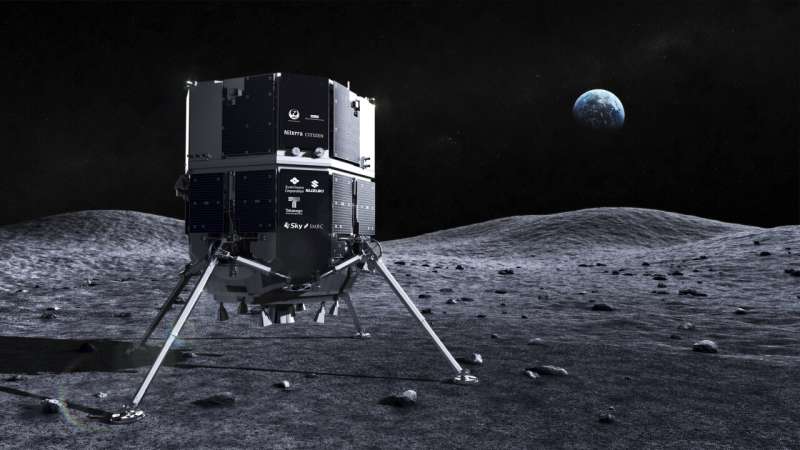
A Japanese company is about to attempt what no other private business has done: land on the moon.
Tokyo's ispace company put its own spacecraft into orbit around the moon a month ago.
Using a computational model to study how to land on a planet safely
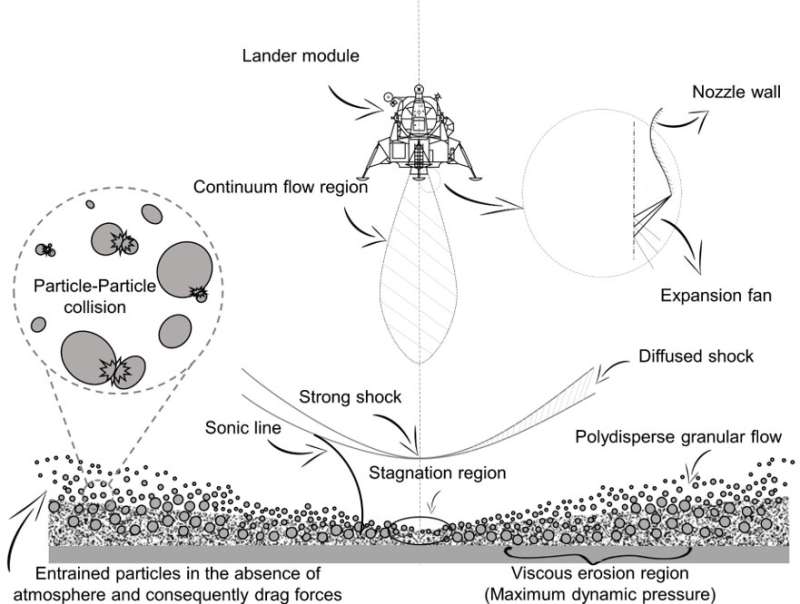
When a lander descends toward the moon—or a rocky planet, asteroid, or comet—the exhaust plume of the rocket interacts with the surface, causing erosion and kicking up regolith particles. The resulting blanket of dusty debris can create a dangerous brownout effect, limiting visibility and potentially damaging the spacecraft or nearby equipment.
In the journal Physics of Fluids,, researchers from Chungnam National University, the University of Edinburgh, Gyeongsang National University, and the Korea Institute of Science and Technology Information developed a model to describe the interaction between a rocket plume and the surface of a planetary body in near-vacuum conditions.
The future of gravity is MAGIC

The latest European State of the Climate report states that, last year, Europe suffered its hottest summer on record. The heat and a persistent lack of rain caused drought which, at its peak, affected much of the continent. This not only illustrates the reality of climate change, but also how precarious our supply of freshwater can be, even in western Europe where the climate is relatively moderate.
By delivering frequent and accurate gravity measurements, a new space mission called MAGIC, a cooperation between ESA and NASA, will help make the important task of managing our
SOHO chases asteroid's tail
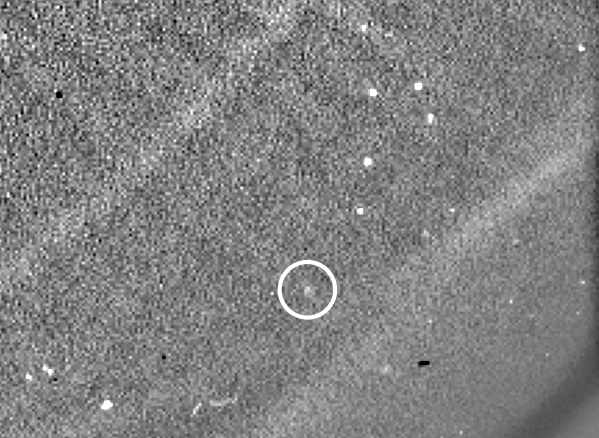
The ESA/NASA SOHO observatory has overturned 14 years of thinking about the strange Sun-skirting ‘rock comet’ known as Phaethon that could reopen the mystery of how the Geminid meteor shower was born.
Viper and T-Rex on double rocket launch

Not one, but two rocket launches with ESA-led experiments are flying to the edge of space just a week apart, providing unique data to researchers eager to learn more about fundamental physics, semiconductor production, the formation of planets and how our immune cells react to spaceflight.




